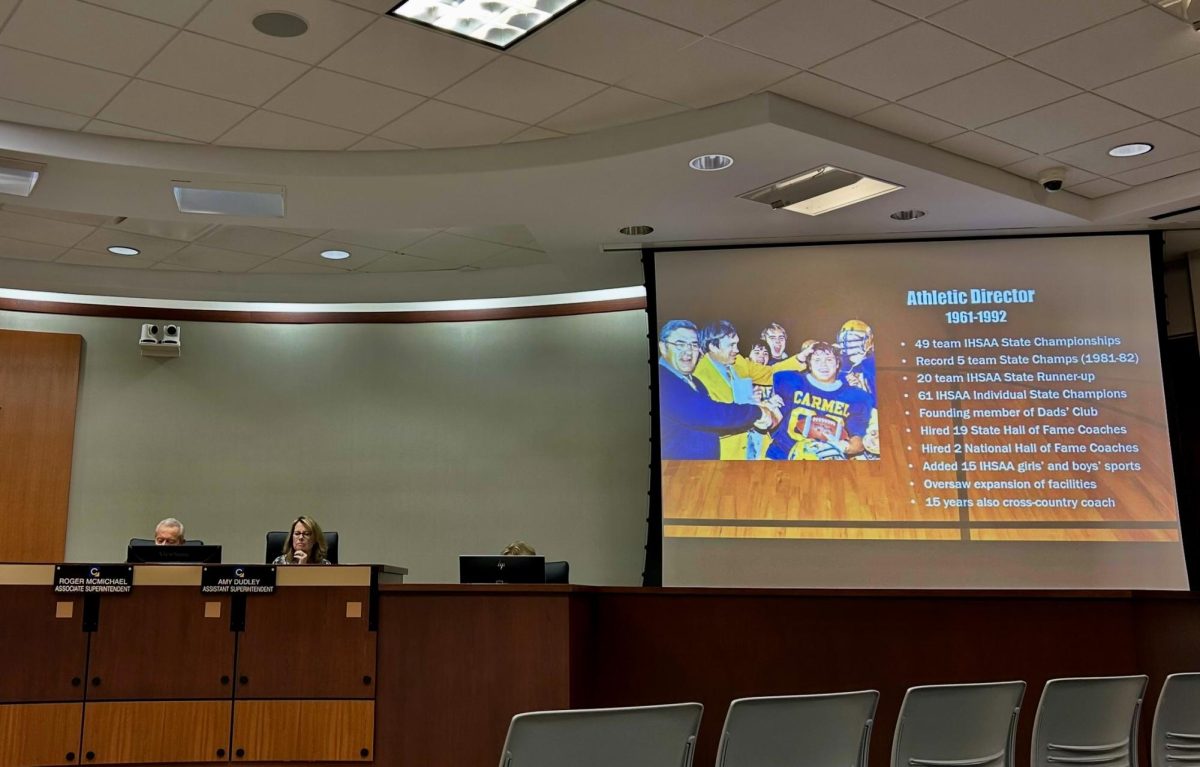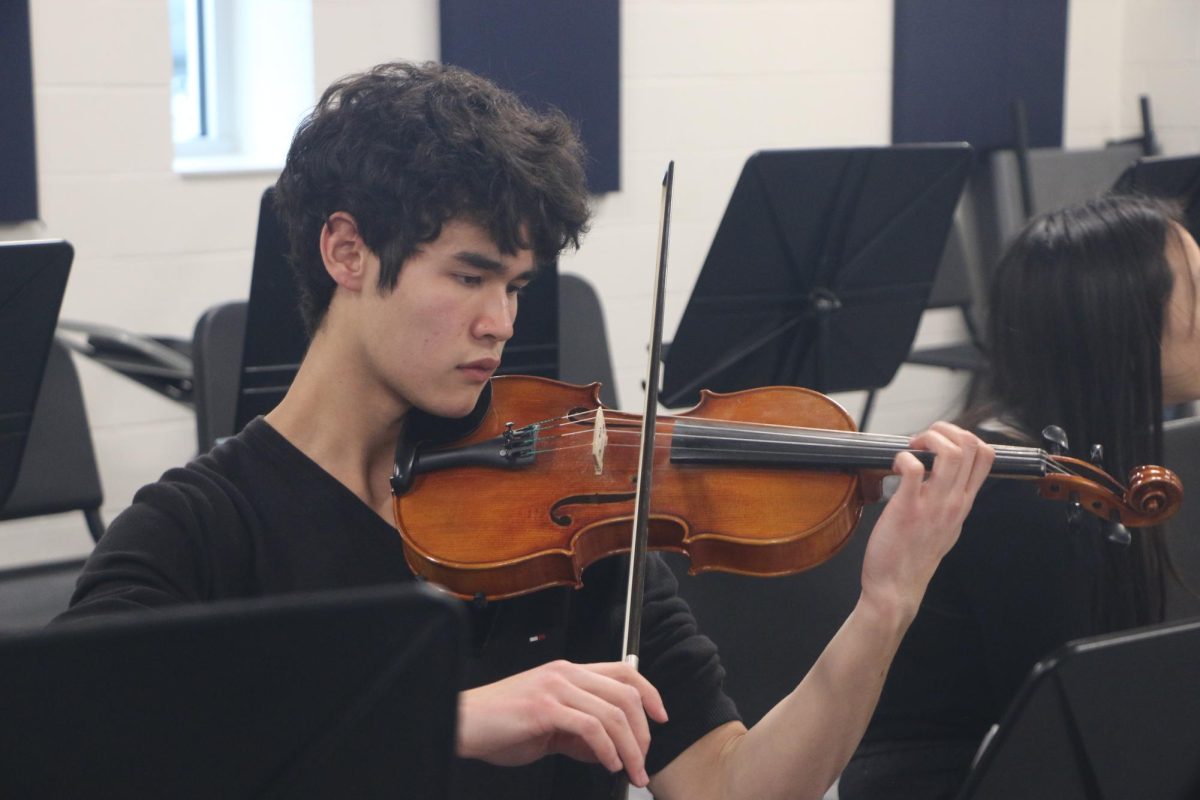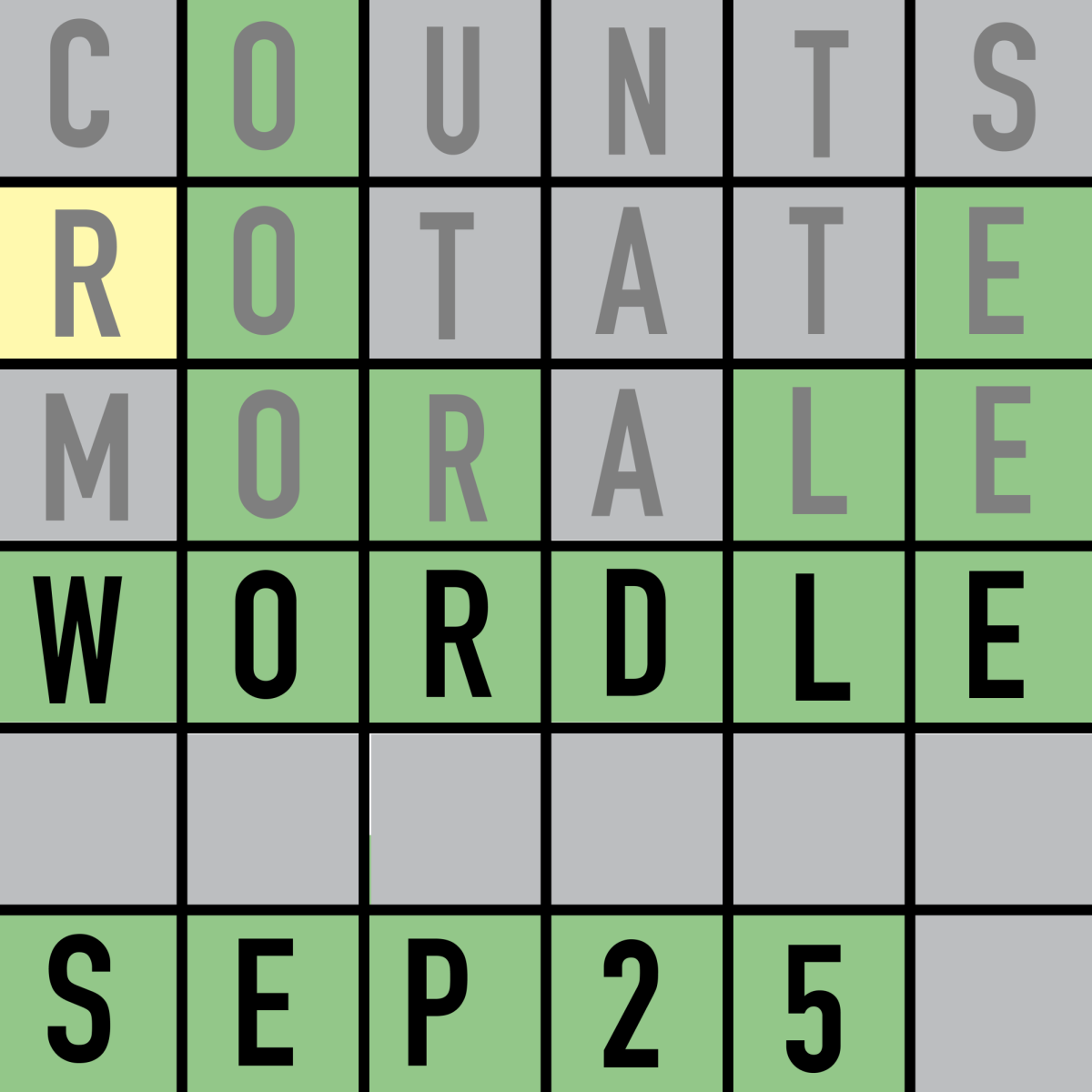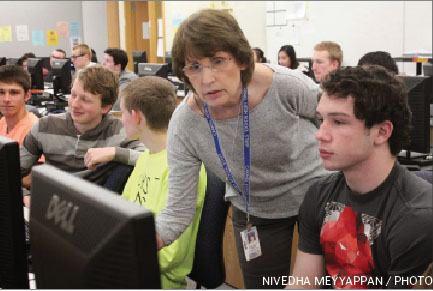In a peculiar incident four years ago, sophomore Duncan McConnell discovered a passion that would remain with him to this day.

“I first got interested in computer science back in sixth grade when I got frustrated with someone else’s glitchy program, actually. So I decided I wanted to be able to make my own,” he said. “Back when I first started learning (computer science), I had no idea I would really enjoy it, and I didn’t pick it thinking it could be a possible career path. I just wanted to be able to not have to rely on someone else’s glitchy program.”
This kind of early exposure to computer science (CS) is exactly what educators are striving to achieve today. According to a February 2014 National Public Radio (NPR) article, a handful of nonprofit and for-profit groups are working to resolve a national crisis: only 5 to 10 percent of K-12 public schools teach CS.
However, according to Margaret Winans, AP Computer Science and computer hardware teacher, despite the few people in the nation who learn CS at a young age, she actually sees an increase in student interest at CHS.
“I had two sections of AP Computer Science for quite a few years. Last year I had three sections; this year I have three and next year I have four sections,” she said. “I have roughly 85 students this year and next year I have over 100, so I’m seeing quite an increase in CS interest.”
Despite the low national percentage of schools that teach CS, job markets show a different trend. A U.S. News & World report ranking the best jobs of 2014 moved computer software developers up six spots from last year, with the average developer earning over $93,000 a year. In the next decade, it is projected that there will be one million more U.S. jobs in the technology sector than CS graduates can fill. With an industry of $8 billion and growing, CS is becoming more exposed to students, according to Winans.
“At some point, no matter where you are, if you are in the business world, you’re going to have to deal with someone, some type of a program, maybe learning how software is going to work for your company. Having that language and idea of how things work is going to help you in the business world interfacing with the developers and management people that you have to work with,” she said.
To help foster interest, McConnell said CHS teachers provide encouragement for the study of CS. In the business department, teachers put up posters that draw attention to the annual wages of CS jobs and the number of graduates needed to fill those positions. They also encourage CS learning through competitions, with the first CHS computer programming competition hosted on March 1.
“The AP Computer Science teacher, Mrs. Winans, has been really great. She’s helpful and a fun teacher to have, and she’s pushed me to work on things I normally wouldn’t,” McConnell said.
A problem Indiana faces that CHS seems to diverge from is the number of AP Computer Science exam-takers. According to College Board, only 391 Indiana students took the CS exam compared to the 67,777 total AP exam—takers, a mere 0.5 percent. But Winans said a large percent of CHS students enrolled in the course take the CS exam.
“Well, it’s increasing. Out of the 85 (students enrolled in the class), I think 60 are thinking about taking it,” she said.
 Jacob “Jake” Oliger, vice president of Computer Programming Club and sophomore, said he will be taking the AP exam this year to further his CS education. Oliger said he wishes to continue learning CS in high school, but his final goal is to major in CS in college and hopefully get a job involving CS. Getting AP credits, he said, will help further that goal.
Jacob “Jake” Oliger, vice president of Computer Programming Club and sophomore, said he will be taking the AP exam this year to further his CS education. Oliger said he wishes to continue learning CS in high school, but his final goal is to major in CS in college and hopefully get a job involving CS. Getting AP credits, he said, will help further that goal.
“If I take those classes, I hope to gain a more formal education in some of these things I’m already interested in, like game development and doing independent projects I want to work on,” Oliger said.
The benefits of learning CS extend to everyday life as well. For someone like McConnell, who learns higher-level math and programming to supplement his CS education, logic is a key skill he develops in AP Computer Science.
“It has really taught me to think outside the box if you can’t solve a problem. It has really helped in my math skills, especially proofs, because the first way you want to do a proof is not always the right way to do it,” McConnell said.
With this early exposure to CS, McConnell said he is now able to pursue his dream of working in security.
“At first it was difficult to learn. But my start was not the best. I jumped into one of the hardest languages first, and I was teaching myself,” he said. “Now that I’m in AP Computer Science I’m learning just as much as I can (about) a bunch of different things involving CS so that when I have to narrow my field to prepping for security, I’ll be able to do that.”




























![Keep the New Gloves: Fighter Safety Is Non-Negotiable [opinion]](https://hilite.org/wp-content/uploads/2024/12/ufcglovescolumncover-1200x471.png)






!["Wicked" poster controversy sparks a debate about the importance of accuracy versus artistic freedom [opinion]](https://hilite.org/wp-content/uploads/2024/11/riva-perspective-cover-1200x471.jpg)









































![Review: “We Live in Time” leaves you wanting more [MUSE]](https://hilite.org/wp-content/uploads/2024/12/IMG_6358.jpg)
![Review: The premise of "Culinary Class Wars" is refreshingly unique and deserving of more attention [MUSE]](https://hilite.org/wp-content/uploads/2024/12/MUSE-class-wars-cover-2.png)
![Introducing: "The Muses Who Stole Christmas," a collection of reviews for you to follow through winter [MUSE]](https://hilite.org/wp-content/uploads/2024/12/winter-muse-4.gif)
![Review: "Meet Me Next Christmas" is a cheesy and predictable watch, but it was worth every minute [MUSE]](https://hilite.org/wp-content/uploads/2024/11/AAAAQVfRG2gwEuLhXTGm3856HuX2MTNs31Ok7fGgIVCoZbyeugVs1F4DZs-DgP0XadTDrnXHlbQo4DerjRXand9H1JKPM06cENmLl2RsINud2DMqIHzpXFS2n4zOkL3dr5m5i0nIVb3Cu3ataT_W2zGeDAJNd_E-1200x884.jpg)
![Review: "Gilmore Girls", the perfect fall show [MUSE]](https://hilite.org/wp-content/uploads/2024/11/gilmore-girls.png)
![Review in Print: Maripaz Villar brings a delightfully unique style to the world of WEBTOON [MUSE]](https://hilite.org/wp-content/uploads/2023/12/maripazcover-1200x960.jpg)
![Review: “The Sword of Kaigen” is a masterpiece [MUSE]](https://hilite.org/wp-content/uploads/2023/11/Screenshot-2023-11-26-201051.png)
![Review: Gateron Oil Kings, great linear switches, okay price [MUSE]](https://hilite.org/wp-content/uploads/2023/11/Screenshot-2023-11-26-200553.png)
![Review: “A Haunting in Venice” is a significant improvement from other Agatha Christie adaptations [MUSE]](https://hilite.org/wp-content/uploads/2023/11/e7ee2938a6d422669771bce6d8088521.jpg)
![Review: A Thanksgiving story from elementary school, still just as interesting [MUSE]](https://hilite.org/wp-content/uploads/2023/11/Screenshot-2023-11-26-195514-987x1200.png)
![Review: "When I Fly Towards You", cute, uplifting youth drama [MUSE]](https://hilite.org/wp-content/uploads/2023/09/When-I-Fly-Towards-You-Chinese-drama.png)
![Postcards from Muse: Hawaii Travel Diary [MUSE]](https://hilite.org/wp-content/uploads/2023/09/My-project-1-1200x1200.jpg)
![Review: "Ladybug & Cat Noir: The Movie," departure from original show [MUSE]](https://hilite.org/wp-content/uploads/2023/09/Ladybug__Cat_Noir_-_The_Movie_poster.jpg)
![Review in Print: "Hidden Love" is the cute, uplifting drama everyone needs [MUSE]](https://hilite.org/wp-content/uploads/2023/09/hiddenlovecover-e1693597208225-1030x1200.png)
![Review in Print: "Heartstopper" is the heartwarming queer romance we all need [MUSE]](https://hilite.org/wp-content/uploads/2023/08/museheartstoppercover-1200x654.png)




